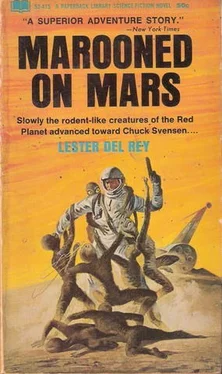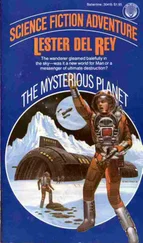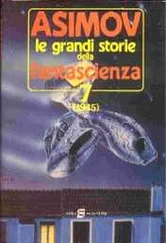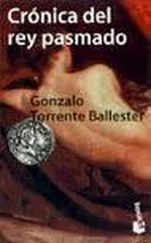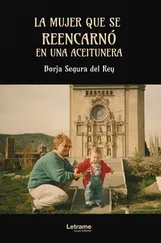Lester del Rey - Marooned on Mars
Здесь есть возможность читать онлайн «Lester del Rey - Marooned on Mars» весь текст электронной книги совершенно бесплатно (целиком полную версию без сокращений). В некоторых случаях можно слушать аудио, скачать через торрент в формате fb2 и присутствует краткое содержание. Год выпуска: 1967, Издательство: Paperback Library, Жанр: Детская фантастика, на английском языке. Описание произведения, (предисловие) а так же отзывы посетителей доступны на портале библиотеки ЛибКат.
- Название:Marooned on Mars
- Автор:
- Издательство:Paperback Library
- Жанр:
- Год:1967
- ISBN:нет данных
- Рейтинг книги:5 / 5. Голосов: 1
-
Избранное:Добавить в избранное
- Отзывы:
-
Ваша оценка:
- 100
- 1
- 2
- 3
- 4
- 5
Marooned on Mars: краткое содержание, описание и аннотация
Предлагаем к чтению аннотацию, описание, краткое содержание или предисловие (зависит от того, что написал сам автор книги «Marooned on Mars»). Если вы не нашли необходимую информацию о книге — напишите в комментариях, мы постараемся отыскать её.
.
Marooned on Mars — читать онлайн бесплатно полную книгу (весь текст) целиком
Ниже представлен текст книги, разбитый по страницам. Система сохранения места последней прочитанной страницы, позволяет с удобством читать онлайн бесплатно книгу «Marooned on Mars», без необходимости каждый раз заново искать на чём Вы остановились. Поставьте закладку, и сможете в любой момент перейти на страницу, на которой закончили чтение.
Интервал:
Закладка:
In the tool supply room he located a fine wire and a small flashlight. Then he began working on the suit again. This time the little plastic tube came out completely, and the wire went down it on the inside. A dab of cement held it in place. He put the plastic tube down, soldered insulated wire to the metal one and led it out to the battery. Soldered connections soon led through the battery to the bulb which fitted snugly inside the helmet, and from the bulb to the wire attached to the plastic tube. Finally, he reinserted the metal into the plastic tube and squeezed it. The little bulb lighted and he nodded in satisfaction.
He climbed into his suit, snapped the helmet down and picked up the electric torch. The air lock closed behind him.
For a moment, he moved along the hull of the ship and the little torch sparkled in the darkness, spitting against the metal. Again he moved on, apparently paying no attention to anything except the tiny holes he seemed to feel in the hull.
This time he wasn’t bored and he knew he wasn’t going to become sleepy. It might have been the radio. It didn’t seem possible, but there might be some way to heterodyne the signal—shift it to one of a different type that would blank out the brain, which was itself partly electronic in behavior. He couldn’t remember a clear case of anyone passing out with the radio off. Sokolsky had slept, but it had been a natural sleep, until he used the radio while waiting; they had gotten him then.
But he didn’t think so. That was just an added precaution.
An hour slipped by. He moved closer to the tip of the Ship, waiting. He knew it was shock that was holding him up. He knew by now that he was as excited as he had ever been. But while the shock lasted, his feelings were deadened, and he meant to take advantage of it. He was beginning to see that others also had feelings, and that they could be shocked. It didn’t matter, if you used whatever you had when it was needed.
The light in his helmet blinked, and then went on steadily. Something was pressing against the tube which carried air up from the tanks to his helmet. So that was the trick. He didn’t dare to turn, but he was picturing something that could lie buried in the sand, to slip up and pinch the air hose gently; the men on watch would be bored, tired from overwork, and ready to pass out easily enough;
when the air supply dropped down slowly, they’d hardly notice it; or if it was a blower suit, it wouldn’t be hard to slip something slowly over the opening of the blower.
He let the little electric welding torch drop slowly, cutting it off. He shook his head as if feeling drowsy. Then he was down on his face in the sand, and there was a chirping, something like a cricket. Other rustlings reached through his helmet—the creatures were coming out of hiding, chirping to each other.
But he didn’t dare look until the rustlings faded a little. Nor could he wait too long. He had the little metal tube to thank for being conscious, but it couldn’t help him any longer.
He took a deep breath, raising the oxygen level in his suit a trifle, and jumped to his feet. The big light on his helmet shot out.
The timing had been right. They were ahead of him, just nearing the top of the little dune. He doubled his Earth-muscled, Moon-trained legs under him and set out as hard as his legs would carry him. They were traveling like deer through a forest, but his locomotion was that of a kangaroo on an open plain.
Part of his mind studied them. They were about half the size of a full-grown man, and even more human in their body shape than he had expected, though they were slimmer than any man could ever be. The arms and legs were shaped and jointed like those of a man, and the neck rose from the shoulders in the same way, though it was longer. There were no signs of ears or of long hair on the head. Instead, the whole body was covered with a golden-brown fur that must have been two inches, long, judging from the way it fluttered in the thin air. Their lungs were large—but not abnormally so. He watched more carefully, and saw that it was the rate of their breathing that accounted for their ability to survive here. Their chests must be heaving a better than two hundred inflations a minute, as against thirty for a man.
There could no longer be any doubts as to their destination. For the first time, they were caught in the act and they were fleeing for what they hoped was safety;’ straight toward the old ruins.
He put on a touch more speed which brought him closer to them. Now one threw a wild look back over its shoulder. The face had no nose—apparently the mouth served for everything. The forehead curved back sharply, but not without a good height. And the eyes were as he remembered them—three times the diameter of human eyes, and perfectly round, set as wide apart as the head would allow.
Now the houses were closer and they began spreading out. He kept his attention on the one with the torch. The weight would slow it, and it would certainly want to bring its treasure to the community hive, or however it lived. The creature was squeaking furiously now, as if it felt all rules of life would be violated if such a big, heavy creature could outrun it.
He was within feet of it when it flashed down what had apparently been the main street. He was within inches when it suddenly darted sideways into the house he remembered as having the elaborate mosaic on the floor. He lost it for a second as he overshot the entrance. But it was furiously busy, pressing in some order on the branches of the tree-thing.
The center of the mosaic suddenly lifted, and the creature darted downward.
He leaped forward before the entrance could close and caught it, wrenching upward with all his force. It gave easily; there was no snapping of hinges, as he had thought He stood holding it, wishing that he’d known enough to leave the radio in his helmet. With that, he could have had the others from the ship here; and a few men should be able to handle hundreds of these delicate creatures, at least when protected by space suits.
He searched for something with which he could leave a sign for anyone who might have missed him in the ship. But even his pouch had been stripped away while he had played unconscious. It was up to him. Or, wait…
It seemed like sheer foolishness, but he had to leave some sign. With a quick wrench of his hand, he tore the light from his helmet and threw it down, pointing at the swinging lid that gave entrance. If anyone came from the ship, they’d be sure to see the burning light.
He still had the little bulb inside his helmet where it had served to warn him that the creature had attacked and how the attack was made. It was a new battery, he hoped. At best, the bulb was a dim thing, and there was no reflector for it. It was also located so that too much of its light spread out in the helmet and against his eyes. But it was better than nothing.
The lid dropped down at once, when he let himself over the rim. It banged gently against his helmet, with no particular force, but a quiet insistence. It was thin, but he remembered that it had withstood them walking over it without a trace of weakness.
He hesitated before letting it drop completely. Then he released his grasp, and it settled smoothly into place. When he pushed up against it, it lifted easily.
Apparently he would be able to get out. He hadn’t felt at all sure of it.
Now he was in pitch darkness, and he could imagine hundreds of them grouped around him to bring him down. His hand reached awkwardly to the air-tube, and he pinched it gently. The little bulb flashed on. He blinked, trying to keep it from shining directly in his eyes. By sticking his chin out as far as he could, he could just cover it.
It gave a dim light that reached only a few feet clearly, but he could see that he was in a shaft that led downward by means of five-foot steps—probably ideal for such a lithe race on a light world. He dropped over the second one, and took a third, putting him fifteen feet under the ground. There he came to an inclined ramp that led gently downward into greater depths.
Читать дальшеИнтервал:
Закладка:
Похожие книги на «Marooned on Mars»
Представляем Вашему вниманию похожие книги на «Marooned on Mars» списком для выбора. Мы отобрали схожую по названию и смыслу литературу в надежде предоставить читателям больше вариантов отыскать новые, интересные, ещё непрочитанные произведения.
Обсуждение, отзывы о книге «Marooned on Mars» и просто собственные мнения читателей. Оставьте ваши комментарии, напишите, что Вы думаете о произведении, его смысле или главных героях. Укажите что конкретно понравилось, а что нет, и почему Вы так считаете.
